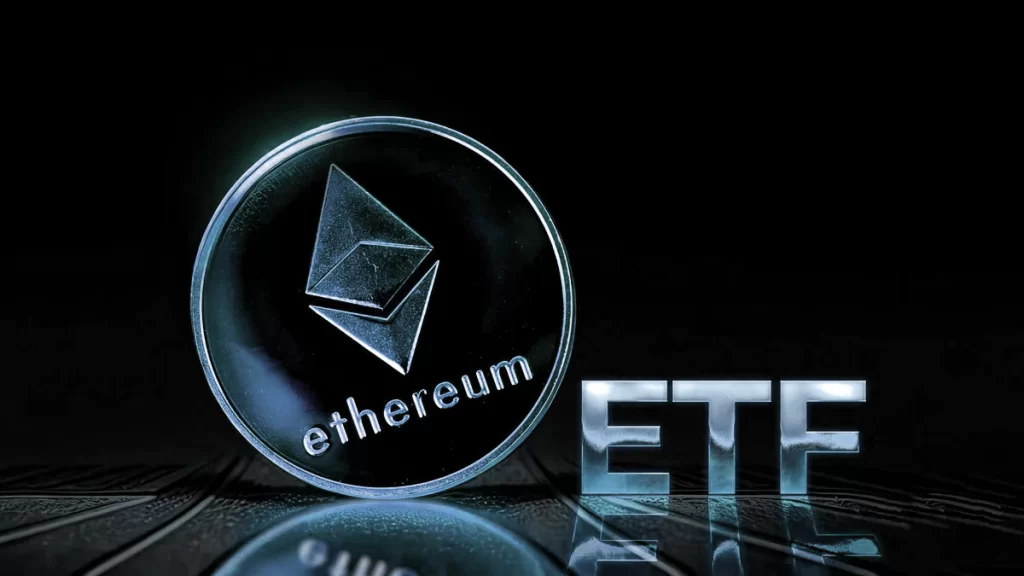
Ethereum Etf
Understanding the Prospects of an Ethereum ETF: Opportunities and Challenges Ahead
The cryptocurrency sector has witnessed a significant resurgence in 2024, with Ethereum, the second-largest crypto asset by market cap, at the forefront. As the crypto market matures, the clamor for mainstream investment vehicles like exchange-traded funds (ETFs) intensifies. This post delves into the evolving world of Ethereum ETFs, exploring how they are becoming a pivotal development in the cryptocurrency landscape, the process and considerations surrounding their approval, the current proposals on the table, and a detailed explanation of what these funds entail.
What is an Ethereum ETF?
An Ethereum ETF is designed to offer investors exposure to Ethereum without the complexities of direct ownership, like managing wallets and keys. Essentially, it tracks the price of Ethereum, allowing investors to buy shares of the ETF through traditional stock markets. This integration into conventional trading platforms can bridge the gap between traditional finance (TradFi) and decentralized finance (DeFi), providing a regulated and potentially less volatile entry point into crypto investment.
The Landscape of Proposed Ethereum ETFs
2024 has been pivotal for Ethereum with increased institutional interest signaling a robust appetite for an Ethereum ETF. Major financial players are gearing up to launch these ETFs, recognizing the potential of Ethereum and its underlying technology. Among them:
- Franklin Templeton: With over 70 years in the financial sector, Franklin Templeton is adept at aligning its offerings with investor demands, now setting its sights on the burgeoning Ethereum market.
- BlackRock: Known for its dominance in new markets, BlackRock is poised to make a significant impact in the Ethereum space.
- VanEck: As a pioneer in crypto ETFs, VanEck aims to expand its footprint in the blockchain and Ethereum sectors.
- Invesco: In collaboration with Galaxy Digital, Invesco has launched a bid to introduce an Ethereum ETF, signaling its commitment to integrating crypto with traditional investment forms.
- Fidelity: With a longstanding presence in cryptocurrency custody, Fidelity is a key player ready to bridge the gap between offline and mainstream ETF investment.
Challenges in Ethereum ETF Approval
While the momentum is building, the approval of an Ethereum ETF faces several hurdles:
- Regulatory Scrutiny: The SEC has historically been cautious about cryptocurrency ETFs due to concerns over market manipulation, volatility, and investor protection. Each proposed Ethereum ETF must undergo rigorous scrutiny to ensure it meets compliance and safety standards.
- Market Volatility: Despite its potential, Ethereum’s price volatility remains a significant concern for regulators. Balancing the innovative aspects of blockchain technology with the financial stability required by traditional investment vehicles is challenging.
- Operational Security: Safeguarding digital assets against hacks and theft is critical. ETF providers must demonstrate robust security measures to protect investors’ interests.
Conclusion
The approval of an Ethereum ETF could mark a significant milestone in the integration of cryptocurrency into traditional investment portfolios. As companies like Franklin Templeton, BlackRock, VanEck, Invesco, and Fidelity lead the charge, the financial community watches closely. The approval process may be complex and fraught with challenges, but the potential for mainstream acceptance and growth in the Ethereum market makes it a pursuit worth watching.
By addressing these aspects, this post aims not only to inform but also to enhance visibility and understanding of Ethereum ETFs among potential investors, paving the way for informed decision-making in this evolving market.






